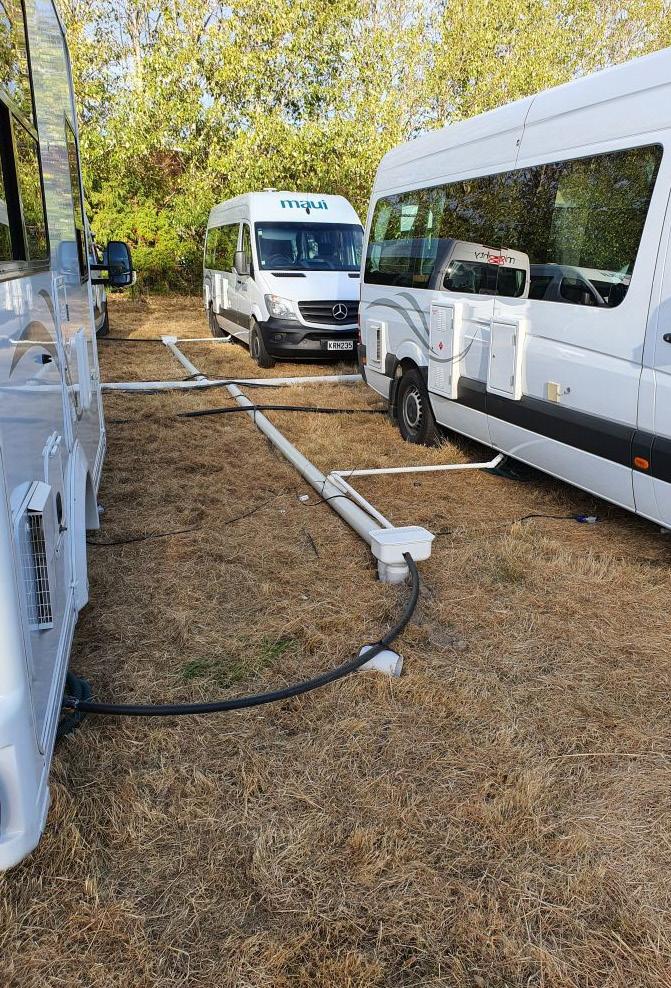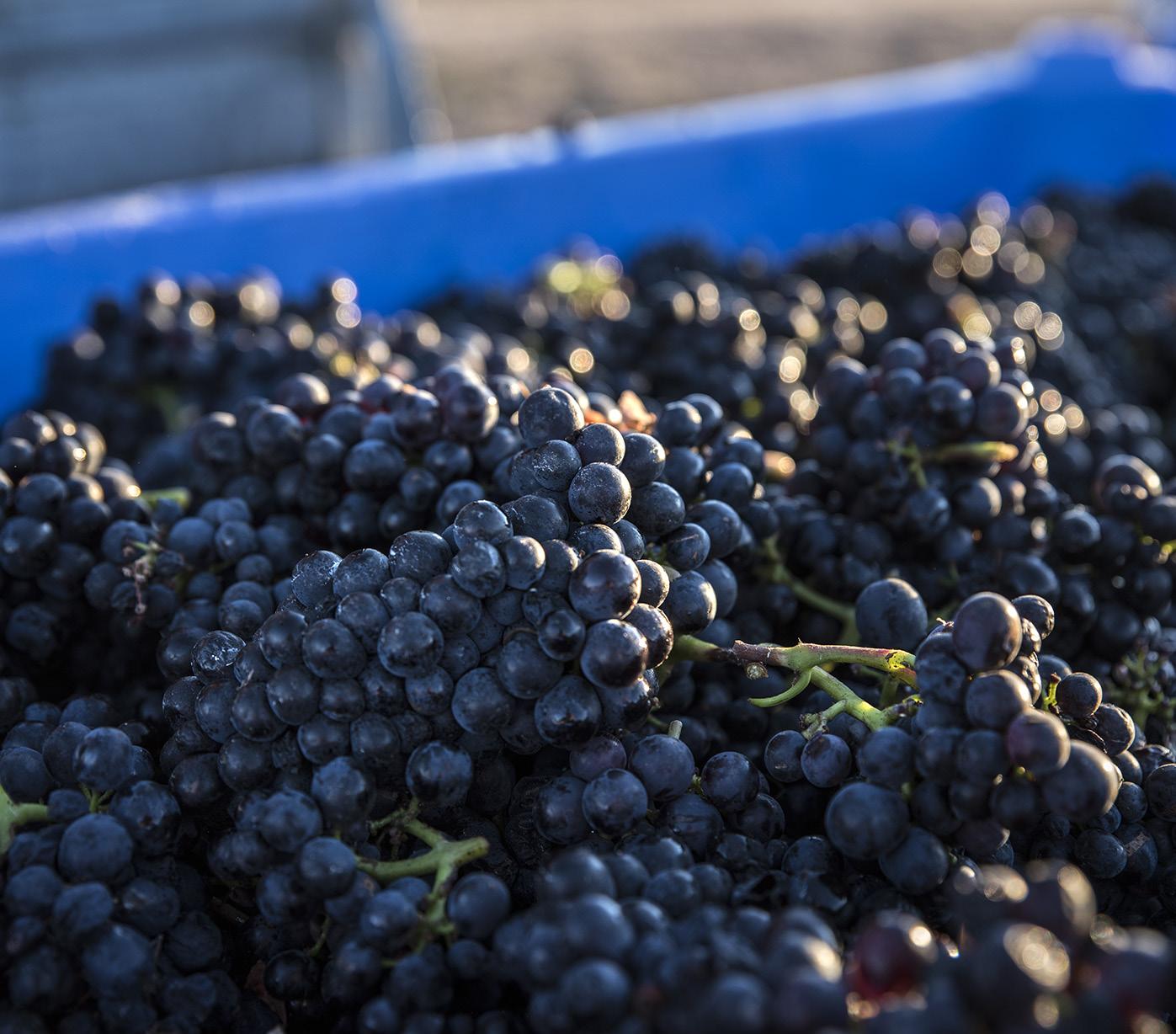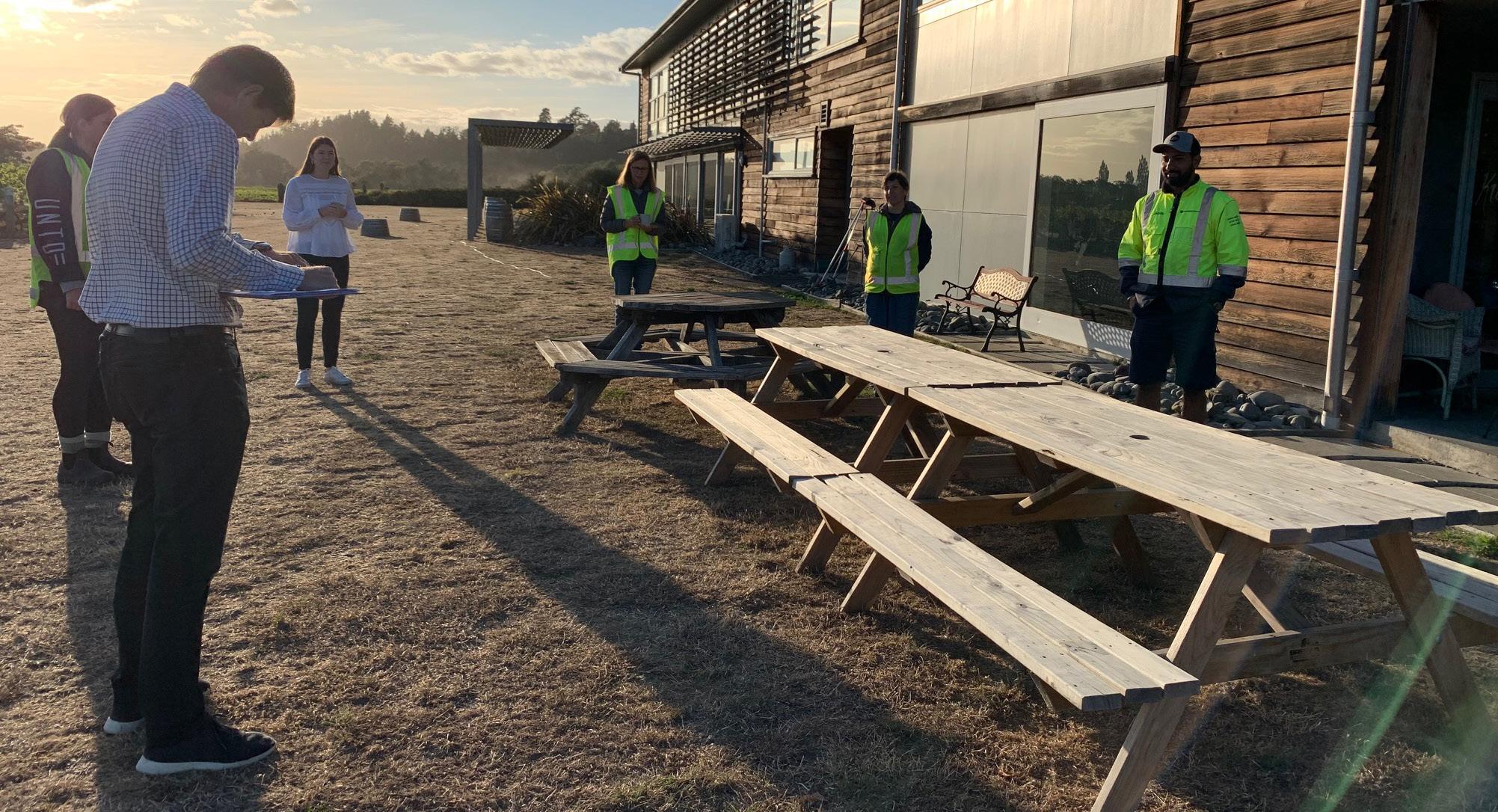
7 minute read
Covid-19 Harvest-20
A vintage like no other
SOPHIE PREECE
MARLBOROUGH WINE companies have battened down the hatches to get through harvest, as Covid-19 shuts down the country. On March 23, wine operations were categorised as essential businesses, allowed to operate through the Government’s Level 3 and 4 Alerts, contingent on strict criteria being met. Companies that had not already done so sent many employees home, and instigated rigorous measures in vineyards, transport, accommodation and winery, says Wine Marlborough general manager Marcus Pickens. “We’ve been really impressed at how seriously people are taking it. There has been a been huge adoption of new ways and rapid change.”
On March 25, hours before Alert Level 4 came into action, Framingham viticulturist James Bowskill said the company had split into shifts, with no contact in accommodation or at work. That was combined with “really rigorous” hygiene measures in all areas and scrupulous record-keeping of people’s movements to and from work. “We are trying to be as transparent and open with interns as we can. To keep them in the loop and emphasise how
Spy Valley’s morning meeting has moved outside, ensuring good physical distancing. Photo taken before Alert Level 4
serious it is, and how important it is to do all we can and keep everybody safe,” said James. Framingham’s vintage team is from overseas, so the company is supplying accommodation through the shutdown. “They were in flats around town and as of tonight they will be in accommodation close to the winery,” he said.
James said machine harvest was relatively easy to do within the stringent Covid-19 rules, including a minimum separation of 2 metres between people. Handpicking is a different story, but he planned for pickers to exceed the 2m isolation gap, and to communicate more by phone, while ensuring gloves, masks and other personal protective gear is in place. “We are really trying to get it as close to perfect as we can, and we are willing to accept that it will make harvesting harder.”
James’ own young family are in different accommodation from him over the harvest and lockdown period. He said Framingham’s crew recognise how fortunate they are. “That’s why we are really trying to do everything we can to keep everyone as safe as possible. We are not taking it for granted at all.”
Rose Family Estate has moved most of its winemakers and vintage crew into hotels or cottages for the duration of harvest. Anyone previously sharing accommodation with a worker or workers from other wine companies is now in isolated accommodation, and so are any staff who were cohabiting with people who could be vulnerable to Covid-19. “We went to the next level and removed them as well,” said chief executive Lindsay Parkinson on March 28. “What that has meant is they are a bit closer to the winery, and we have more control over them.”
The company is doing all supermarket shopping for the crew, and vintage meals are being managed by Tane Malcolm, chef at Wairau River’s restaurant, which is closed. Operations in the winery have been adapted to meet government criteria, with the already stringent requirements of the company’s British Retail Consortium (BRC) certification “ramped up another few notches”, to protect the staff and stop the spread of Covid-19., said Lindsay.
It had been an “unsettling” start to harvest, with many unknowns,


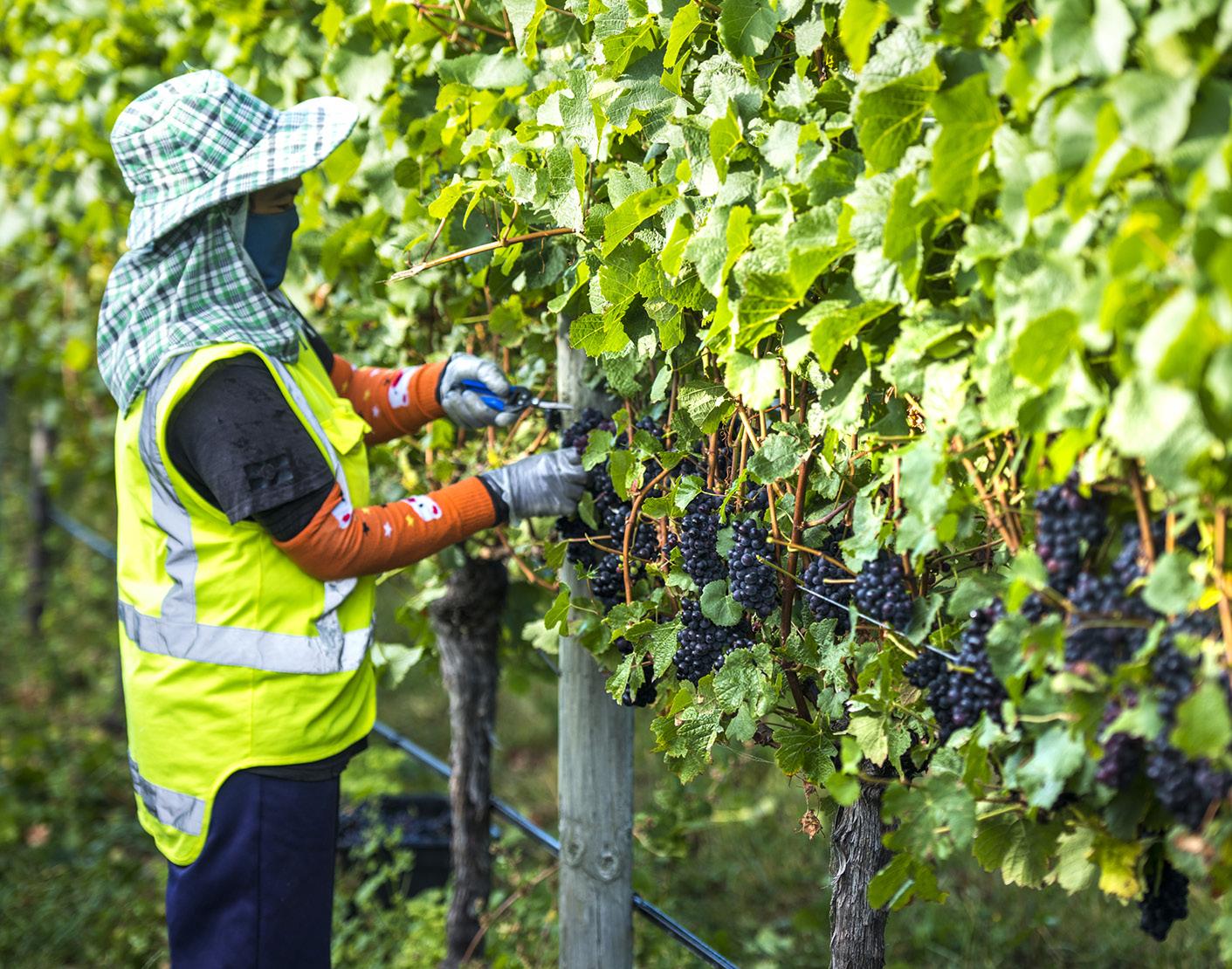
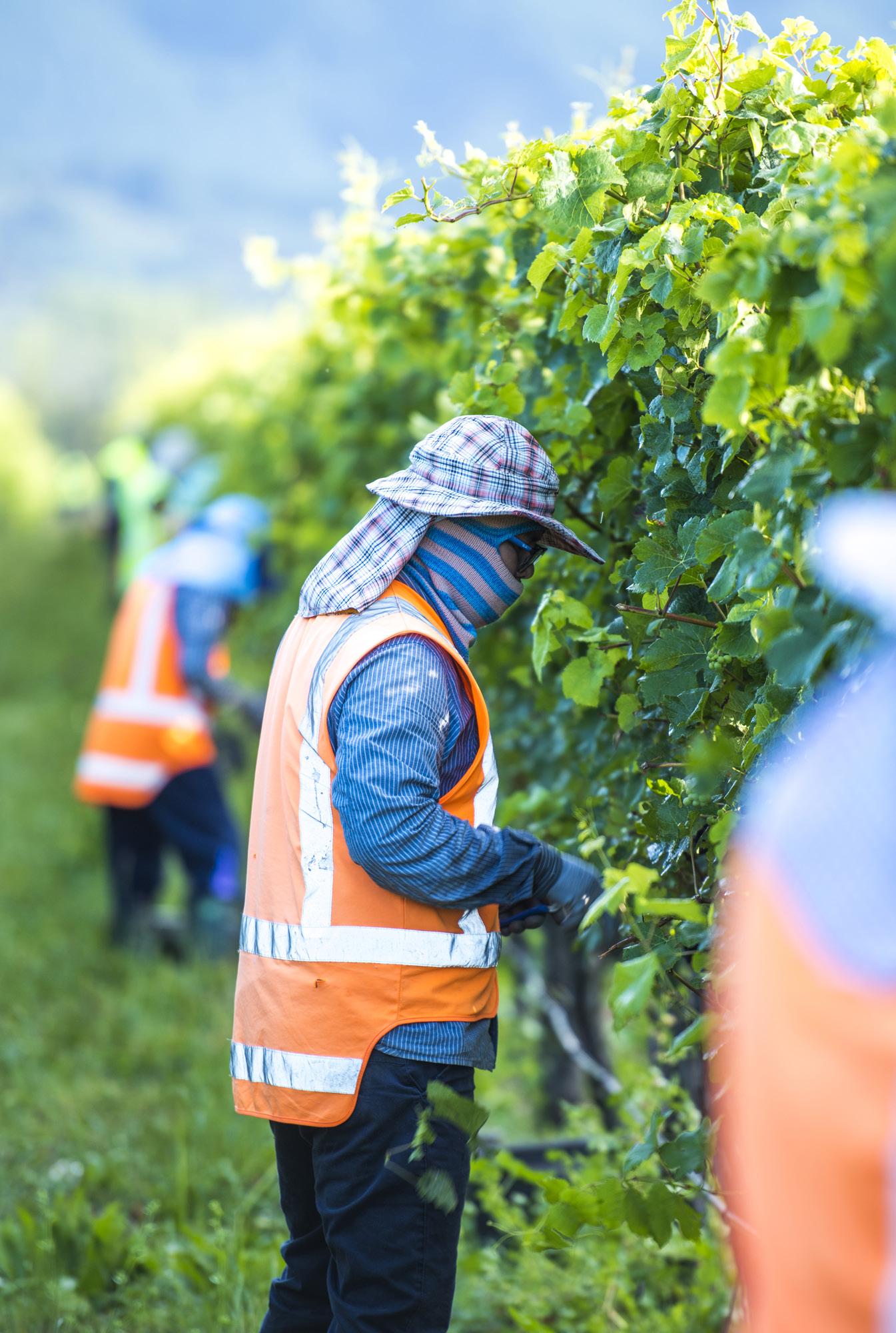


and he was looking forward to the crew getting into the new routine, and “pushing through for the next couple of weeks”. The changes include having an extra full time cleaner at the winery, so that whenever there are staff in the winery there is a cleaner disinfecting surfaces. They are also assessing how they manage visiting contractors, such as electricians doing critical work, having visited other wineries. He hopes Ministry for Primary Industries (MPI) inspectors will visit all wineries in Marlborough, so the industry can ensure everything that can be done, is being done. “You want to know you are doing the right thing for your employees, your own family and the country.”
Lindsay is questioning what will happen to the vintage workers after the harvest finished. Generally at the end of harvest there is a period of “little things” to be done, which are not essential and may not be allowed for under the lockdown. “That’s something we need to start thinking about - as to how to look after them in that period. We are a small enough team and they become part of our family.”
Online wine sales prior to the lockdown were strong as people stockpiled, and he expected another surge as people reached the bottom of those cases. There have also been “very good sales” in the retail environment in Australia, the UK and America. “We have already seen some urgent requests for stock to get moved through to export markets,” he said. However, there will be further pain down the road. “At the moment there’s a honeymoon period where it’s all new, but I’m sure it will be a tough time ahead.”
The company is not promoting itself online, and is being very careful with social media posts, given the privilege of being able to operate. “We are bloody lucky,” he said, comparing New Zealand’s situation to South Africa, which initially had its harvest shut down, although that decision was subsequently overturned, allowing them to continue. Fruit quality is looking good and, weather willing, harvest would be completed in two weeks, he said. “Hopefully the weather plays its part in the next few weeks as well. We’ve had a lot to deal with and we don’t need bad weather as well.” That said, Covid-19 makes a few rainstorms “look like a walk in the park”, he added. “I have had easier weeks in the wine business, but I believe we are doing the right thing.”
Villa Maria has created motorhome villages on site at its Marlborough and Hawke’s Bay wineries, with 75 motorhomes in Marlborough alone. Villa Maria’s global public relations and communications manager Sarah Szegota said that ensures a secure base for any of the team unable to assure the company that they could effectively self-isolate at home. “In a number of cases, some of our staff have chosen to live on site regardless.” Comfort and hygiene are “non-negotiables”, with each motorhome connected to electricity and plumbing, said Sarah.
The company recognises its “incredibly privileged position”, in being allowed to continue to operate under Covid-19 Alert Level 4, albeit under very strict guidelines, she added. “We are being exceptionally careful to minimise the risk of our operations spreading the virus over the period of the lockdown.”
On March 24, Spy Valley managing director Amanda Johnson said 98% of the company’s administration, sales and marketing, and operations staff were now working from home, bottling had ceased for vintage, and the company had been practicing enhanced hygiene and physical distancing for at least 10 days. They all recognised the “huge privilege and responsibility they carry for the staff and community to act with the utmost duty of care to stop the spread”, she said. The cellar door closed on Monday, March 16 and the site is now closed to all but essential visitors, who must sign in and follow strict protocols. Spy Valley is also practicing contact tracing, “in case it is needed”, including daily diaries, she said.
The focus has been on looking after the health and well-being of Spy staff, she explained. With that in mind, a staff Whatsapp group has been designated for humour only, including a daily quizz, “which is bringing some light relief and keeping us all connected, she said. “I have been overwhelmed with the resilience and commitment from our team coming together to support each other.” By March 27, the push for social connection from self-isolation had ramped up to Friday drinks via Zoom for the team working from home. “It was fun to have a laugh with the team in these challenging times.”
On the plus side, harvest is looking “so good”, with grapes in “perfect condition”, Amanda said. “It would be a big celebration in normal circumstances, now it’s just heads down and managing for a healthy and sustainable outcome for the whole community.”
Marcus says it had been extraordinary to see the industry adapt so swiftly and so well to a harvest unlike anything anyone had imagined, and end up with fruit where it’s meant to be. “You take the most pressurised time of year for a wine company and then totally upheave it, throw it around and make it land back together in the same order. It’s incredible, really.”
